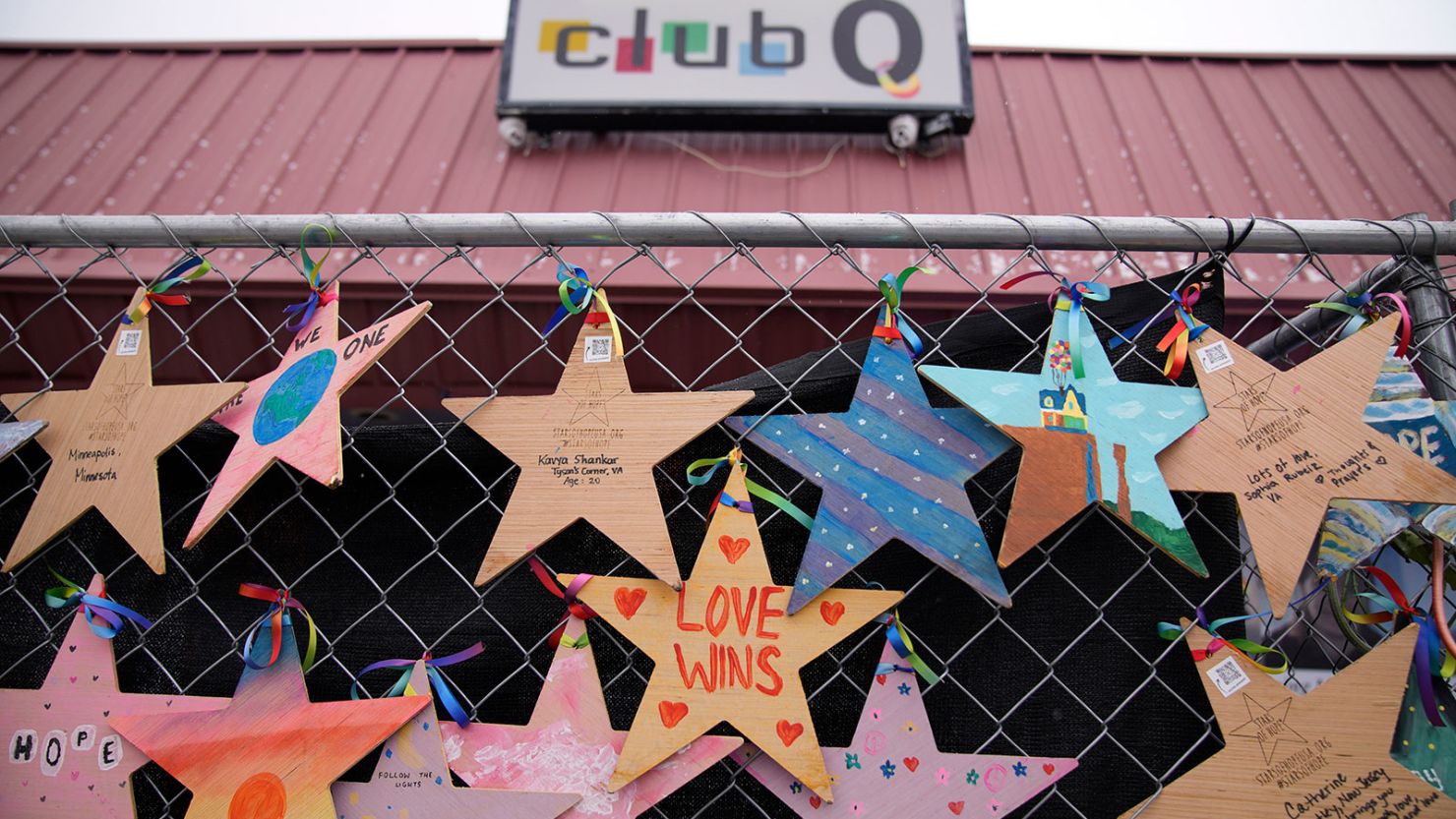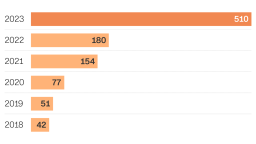The shooter who opened fire in a Colorado LGBTQ+ nightclub in 2022, killing five people and injuring 19, was sentenced in federal court Tuesday to life in prison without the possibility of parole plus 190 years.
The sentence came after Anderson Lee Aldrich pleaded guilty to 74 federal hate crime charges and gun charges in connection with the shooting. Prosecutors chose not to pursue the death penalty in the case, and the US Department of Justice announced in January it had reached a plea agreement with Aldrich.
US District Judge Charlotte Sweeney handed down the sentence after hearing from the victims’ families and survivors of the shooting, many of whom were disappointed Aldrich would not face a capital sentence.
“Fueled by hate, the defendant targeted members of the LGBTQIA+ community at a place that represented belonging, safety, and acceptance – stealing five people from their loved ones, injuring 19 others, and striking fear across the country,” said Attorney General Merrick B. Garland in a statement after the sentencing.
Sweeney, the first LGBTQ+ federal judge to serve in Colorado, did not have the discretion to impose a different sentence, she told them, citing the plea agreement. But she emphasized the importance of Aldrich’s decision to plead guilty: In doing so, she said, Aldrich admitted to carrying out the attack because of the victims’ “actual or perceived gender identity or sexual orientation.”
“This community is stronger than your armor, stronger than your weapons and stronger than your hatred,” she told Aldrich, noting she was sentencing him during Pride Month.
Aldrich, 24, is already serving five consecutive life terms and an additional 2,212 years without the possibility of parole at the Wyoming State Penitentiary after pleading guilty in 2023 to state charges for the attack, which targeted one of the few LGBTQ+ spaces in Colorado Springs, fostering a safe and inclusive atmosphere in a conservative community.
“I loved that place,” Ashtin Gamblin, who was shot nine times and survived, said during her victim impact statement prior to sentencing. While she is not a member of the LGBTQ+ community, Gamblin said, she is an ally.
“I loved everybody there,” she said, crediting Club Q’s bar supervisor, Daniel Aston, with saving her life before he was killed.
Aside from Aston, Derrick Rump, another Club Q employee, was also killed, as well as Ashley Paugh, Kelly Loving and Raymond Green Vance.
Many of those who testified Tuesday expressed anger for the shooter, and the pain Aldrich caused them or their families. Aldrich – who appeared in court in an orange prison uniform – was largely expressionless, or nodded while listening to the statements.
“You took my only sibling,” said Stephanie Clark, Paugh’s sister, who also testified at Aldrich’s state sentencing.
“But I wanted to look you in the eye one more time and tell you I will never forgive you, nor will my family,” Clark said. “You don’t deserve that.”
Wyatt Kent, who performed as a drag queen the night of the shooting, said it was difficult to prepare this statement during Pride Month, but pointed to the resilience of the LGBTQ+ community.
“I forgive you,” Kent said. “We, the queer community, we are the resilient ones. We continue to hold that beauty within each other. We continue to find joy in the trauma and in the pain.”
“Unfortunately,” Kent said, “those are things you will never experience for the rest of your life.”
A ‘brazen and calculated’ attack
In a sentencing statement submitted to the court prior to Tuesday’s hearing, the Justice Department called the shooting a “brazen and calculated” attack on the club’s employees and patrons, describing it as a “bias-motivated, premeditated, mass-casualty attack.”
Aldrich began the massacre at the club as patrons were gathering for Transgender Day of Remembrance, for which Club Q had scheduled a weekend of events, including a drag show.
The shooter spent more than $9,000 buying weapons and visited the club several times before, becoming familiar with the layout, according to the sentencing document. Aldrich had expressed an open hatred for the LGBTQ+ community and had indicated an interest in mass shootings before, the document said.
Then, in the late hours of November 19, 2022, the then-22-year-old entered the club carrying an AR-15 style assault rifle and began “firing at everyone in sight,” according to the sentencing document. Some patrons hid or played dead as Aldrich moved though the club, shooting indiscriminately.

The violence came to an end when an army veteran took down the shooter, aided by a Navy petty officer and a drag performer at the club.
The shooting provided an echo of the devastating 2016 shooting at Pulse, an LGBTQ+ nightclub in Orlando, Florida, which left 49 people dead.
Several victims who were shot but survived have required surgery for their injuries and continue to face medical challenges, including loss of mobility and post-traumatic stress disorder.
For Colorado Springs’ queer community, the mass shooting was traumatic. The club served as a crucial safe haven for people from a variety of backgrounds living in a conservative stronghold. One trans man who worked as a drag king at Club Q told CNN after the shooting, “Our safety as queer people in Colorado Springs is now questioned. I’m scared to be myself as a trans man in this community.”
Aldrich has faced heavy sentencing for the brutal attack: The 2023 sentence was the second-longest ever given in Colorado, behind only the 2012 Aurora theater mass shooting, according to the district attorney.
This?story?has been updated with additional information.
Correction: A previous version of this story misstated the status of Anderson Lee Aldrich’s plea. The shooter agreed in January to plead guilty to federal charges stemming from the Club Q shooting.
CNN’s Lucy Kafanov reported from Denver, while Dakin Andone and Zoe Sottile reported and wrote this story in New York. CNN’s Andi Babineau contributed to this report.



